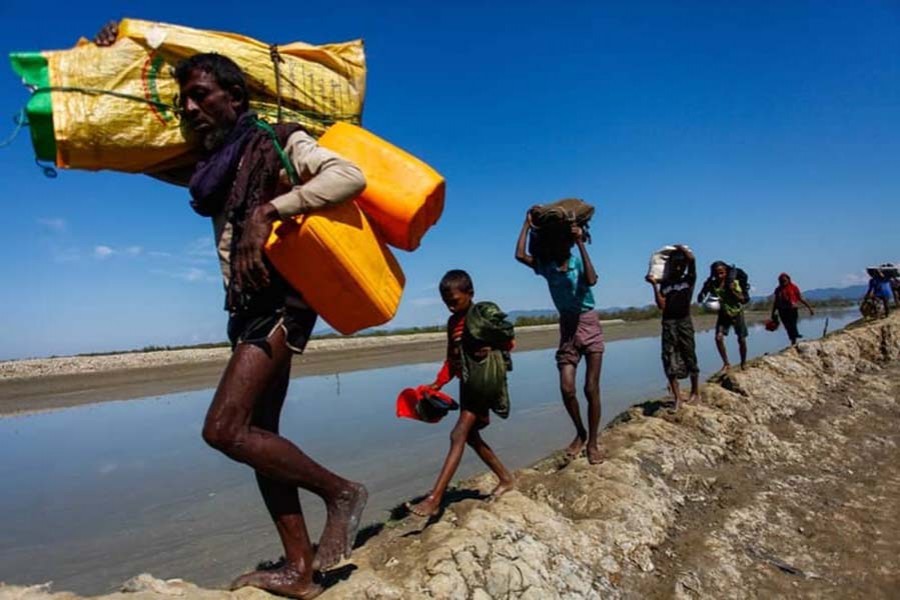The number of new arrivals now stands at 624,000 as 3,000 more Rohingyas entered Bangladesh since November 22, said UN Migration Agency on Monday.
As of November 25, Bangladesh Immigration and Passports Department registered 663, 694 people through biometric registration, according to the IOM Needs and Population Monitoring.
Meanwhile, Bangladesh Social Service Department has identified 7,771 unaccompanied and separated children.
The report is produced by Inter Sector Coordination Group (ISCG) in collaboration with humanitarian partners that covered November 17 to until November 24. The next report will be issued on December 3.
This week the ISCG Humanitarian Hub in Ukhia will become operational and the ISCG will deploy staff to the field in order to provide coordination services on the ground for sector partners, government authorities and both national and international nongovernmental organisations.
The hub has been constructed by the International Humanitarian Partnership and IOM, says a UNB report.
Violence in Rakhine State which began on August 25 has driven the Rohingya across the border into Cox's Bazar, Bangladesh.
The people who have arrived in Bangladesh since August 25 came with very few possessions.
They have used most their savings on transportation and constructing a shelter, often out of no more than bamboo and thin plastic.
The Rohingya population in Cox's Bazar is highly vulnerable, having fled conflict and experienced severe trauma, and now living in extremely difficult conditions, said the report.
Population movements within Cox's Bazar remain highly fluid, with increasing concentration in Ukhia, where the government has allocated 3,000 acres for a new camp.


